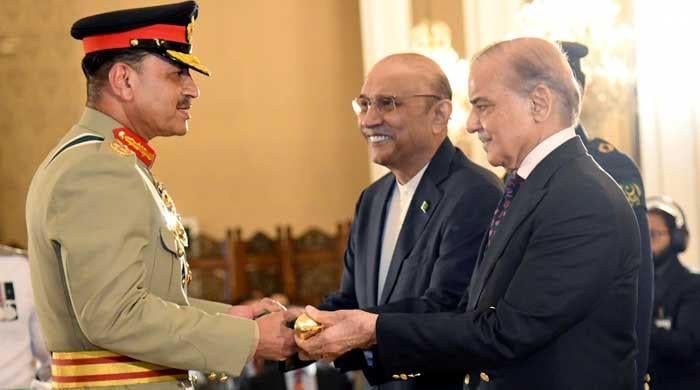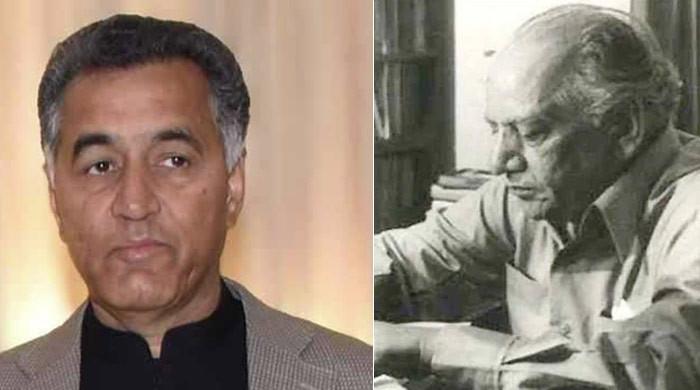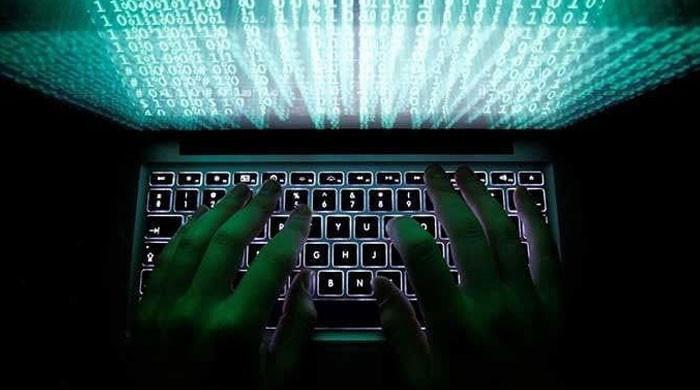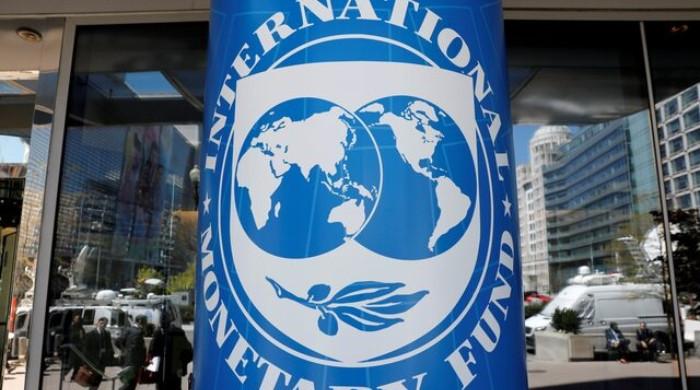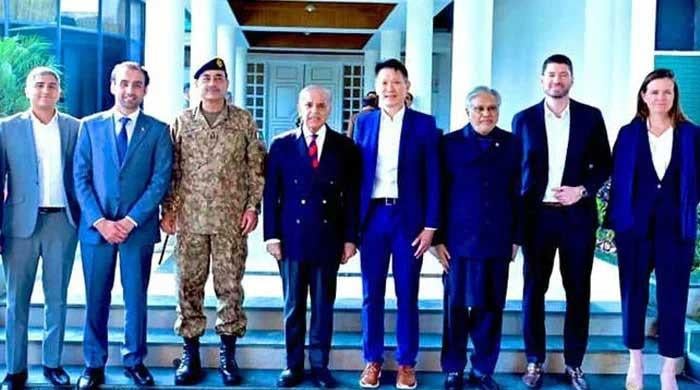A dose of diplomacy
No matter whether a country is an ally or foe of the United States, Trump situation has spared no one
January 17, 2025
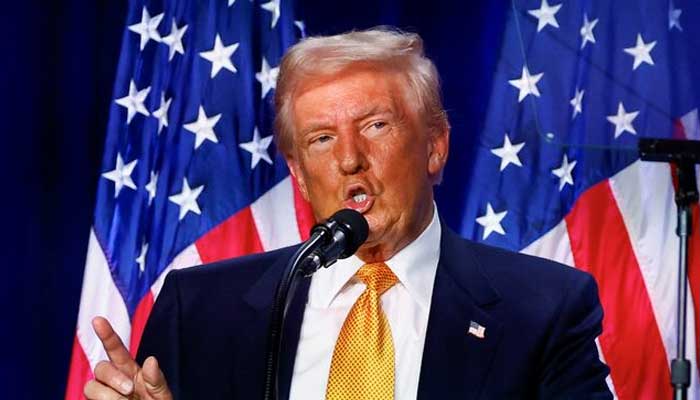
President-elect Donald Trump has been causing severe anxieties across the globe. No matter whether a country is an ally or foe of the United States, the Trump situation has spared no one. Whether it’s close allies like Canada and the UK or adversaries like China, everyone is feeling the fever.
Pakistan, with its long-standing strategic relationship with the US, is no exception. Both countries have fought wars together and carried out covert operations around the world. However, despite their close military ties, their approach towards each other has often been contradictory.
For the US, these relationships have always been transactional, while Pakistani officials have often viewed them as sincere gestures. This divergence in perspectives may stem from the difference between Western and Eastern thinking. But not all Eastern nations behave like emotional Pakistanis.
For example, Egypt and Turkey have managed to strike transactional deals with the US when necessary, but Pakistan has extended military support without demanding any solid deals in return. This has often been criticised as a ‘cheap sale’.
During both Afghan wars, many international observers considered Pakistan’s role mercenary-like. However, in truth, Pakistan acted more as a volunteer, not even receiving handsome deals for its sacrifices.
The Trump situation, with its transactional approach, may be easier to handle. With a president who demands the best deal in exchange for his wishes, Pakistan could simply negotiate a high price for its cooperation. Pakistan, though a relatively small state, has never blindly accepted all US policies, especially regarding the Middle East and its own nuclear programme.
While Pakistan has fought six wars, often with the open or covert support of the US, there have also been moments where the countries’ interests have diverged.
For decades, the US has pressured Pakistan to halt its nuclear and missile programmes, but Pakistan has remained resolute in its pursuit of security.
This has been done quietly, without drawing too much attention. A month before the recent sanctions on Pakistan’s missile programme, US State Department official Donald Lu (the same official who was allegedly named in a cipher conspiracy against Imran Khan’s government) called Pakistan’s ambassador to Washington. Lu warned Pakistan to halt its missile programme because, he claimed, it was now targeting the US.
The Pakistani side, surprised, explained that their missile programme was not aimed at the US, but at India. They pointed out that their missile targets were specific to India, such as moving objects in the waters of the Nicobar Islands, which are part of Indian territory. Lu, however, dismissed this logic, and the US went ahead with sanctions, including banning the country’s supreme institution overseeing missile development.
Let me share a personal anecdote about Mohtarma Benazir Bhutto, often referred to as the ‘Darling of the West’ by her detractors. Sometimes, perceptions are far from reality. Benazir, in fact, was a true ‘Daughter of the East’, deeply patriotic and committed to her country. However, stories were fabricated about her being pro-Western and pro-India, which were ultimately proven false.
I once had a meeting with Mohtarma in Dubai, where former Sindh chief minister Aftab Shaban Mirani was also present. During our conversation, Mohtarma mentioned that Mirani was in Dubai to discuss a forthcoming meeting with the US ambassador in Pakistan.
In a slightly sarcastic tone, I remarked, “BB, you and the Americans are now one. Both have the same worldview, same agenda, especially since you’re fighting the Taliban together in Afghanistan.” Benazir Bhutto, noticing my ironic smile, asked, “Are you serious?” I nodded in half-agreement.
Then, in a firm voice, Benazir reprimanded me, saying, “The Americans have only one agenda in Pakistan: they want to dismantle Pakistan’s nuclear programme.” She went on to reveal how she had facilitated the transfer of missile technology from North Korea to Pakistan. This conversation was strictly off the record, and I kept it that way until her tragic assassination. I only disclosed it years later, in my 2011 book ‘Qatil Kaun’ – published three and a half years after her death.
Now, as the Trump fever spreads rapidly across the world, Pakistan is gearing up on how to handle it. If a transactional settlement is needed, Pakistan will certainly ask for a high price. Efforts are underway to neutralise Trump’s influence through diplomacy, defence channels, and the Pakistani diaspora.
The US is facing a difficult position, especially in its support of the Taliban, with increasing opposition from within the country, particularly from Republicans. If tensions rise between the Afghan Taliban and Pakistan, Trump may be left with little choice but to support Pakistan.
My hunch is that the growing meetings between Pakistani military leaders and Saudi Crown Prince Mohammed bin Salman (MBS) must have addressed Trump’s interference in Pakistan’s affairs, and Pakistan may have asked MBS for assistance.
MBS, after all, is seen as Trump’s ‘trump card’ in the Muslim world. Should all else fail, Pakistan may be forced to defy the US and form an open alliance with the China-Russia bloc. While efforts to thaw relations with longtime adversary Russia are ongoing, Pakistan’s strategic relationship with China remains strong, and it’s only building stronger ties with Russia.
In my humble opinion, the Trump problem is real, it’s here, and we are all in the same feverish boat. But with the right treatment, maybe we can all avoid the worst symptoms of this situation. The best way to deal with this is with patience, without being reactive.
Pakistan can navigate through this global crisis with a cool head and steady diplomacy. It should maintain a careful balance between China and the US, as breaking away from the US would have disastrous consequences. The best course of action is to lie low and let the storm pass over us.
The writer is the editor of Jang in Lahore, an anchor, and the executive director at Geo TV.
Disclaimer: The viewpoints expressed in this piece are the writer's own and don't necessarily reflect Geo.tv's editorial policy.
Originally published in The News




